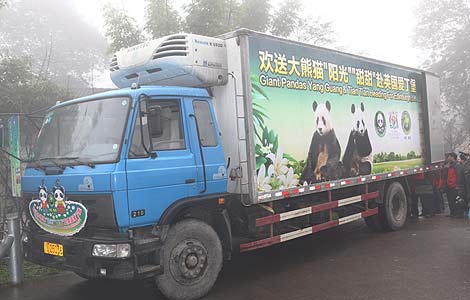Role of WTO key to EU and China
Updated: 2011-12-09 08:21
By Duncan Freeman (China Daily)
|
|||||||||
In the 10 years since China joined the World Trade Organization (WTO), its trade with the European Union (EU) has expanded enormously. The WTO has provided an important framework for this expansion, but today this role is being overshadowed by the crisis in the EU, which threatens repercussions globally as well as the economic relationship between Europe and China.
Since 2000, the year before China joined the WTO, EU imports from China had grown by 279 percent, worth 283 billion euros ($390 billion) in 2010. Exports to China from the EU increased by 337 percent over the same period to 113 billion euros in 2010. In Europe and China there is a recognition that the trading relationship is now vital to both sides.
This growth in trade has not been without problems. The evidence can be found in the frequent disputes, which have marked the past decade and focused on trade imbalances. Measured in the conventional fashion by bilateral statistics, the EU has a large trade deficit with China.
After accession to the WTO, China introduced a series of measures to comply with its new obligations. However, so far, in the bilateral relationship between the EU and China, the WTO has not played a major role. Its rule-setting role has been stalled in the Doha Round and neither China nor the EU has taken the lead in seeking a way out of the impasse.
Although the WTO governs global trade, the EU and China have generally sought to resolve their differences bilaterally. But the rule-enforcement role of the WTO has become more important as both sides have shown increasing willingness to make use of its dispute resolution procedures.
The WTO has provided the framework for global expansion of trade, but in recent years it has been overshadowed by financial crises, with the most recent and severe manifestation in the EU. True, the WTO system has helped hold the dyke against rising tides of protectionist sentiment, but it can do little in the short or even medium term to resolve the fundamental problems that have caused the economic disaster engulfing Europe.
China, like the rest of the world, has interests at stake in the EU. Failure there has led to economic devastation that will bring hardship to people across Europe whose living standards will fall. In Greece, Spain, Portugal and Ireland this has already occurred, and economic weakness is spreading.
The results are already evident. China's exports to the EU are stagnating or falling as economic growth weakens and consumers spend less. Usually summer and autumn are the peak season for China's exports to the EU. But according to EU figures, China's exports to Europe fell in June and July, and only managed feeble growth of 3.6 percent in August. China's exports to Germany declined throughout the period from June to August this year. Exports to other major economies in the EU have shown similar weakness in recent months. Fortunately for the EU, exports to China are running at record levels, and are still growing strongly, although not quite at the same rate as they were a year ago.
In 2001, one of the key aims of policymakers was to achieve stable integration of China into the rule-based global trading system. This has unarguably been a success, but recent events in Europe show that rules alone are not enough to enable stable trading conditions. Economic policymaking is also important.
The relevance for China of the European lesson goes much deeper than simply that failed policymaking in the EU is undermining export markets for Chinese companies. There is a fundamental lesson to be learned in the European failure, and this is that hard policy decisions cannot be avoided. Avoiding decisions has high costs that undermine the global system.
Unlike the EU, China has long recognized the need to begin a process of economic rebalancing. In this process, China will have to make economic policy choices that will have an impact globally as well as domestically. While China's situation is far from being as dire as the eurozone's, nevertheless it faces tough decisions on the road to rebalancing its economy that must be taken to ensure the trading relationship with Europe and also with the rest of the world continues to build on the foundations laid when China joined the WTO.
The author is a research fellow at the Brussels Institute of Contemporary China Studies.
(China Daily 12/09/2011 page21)











